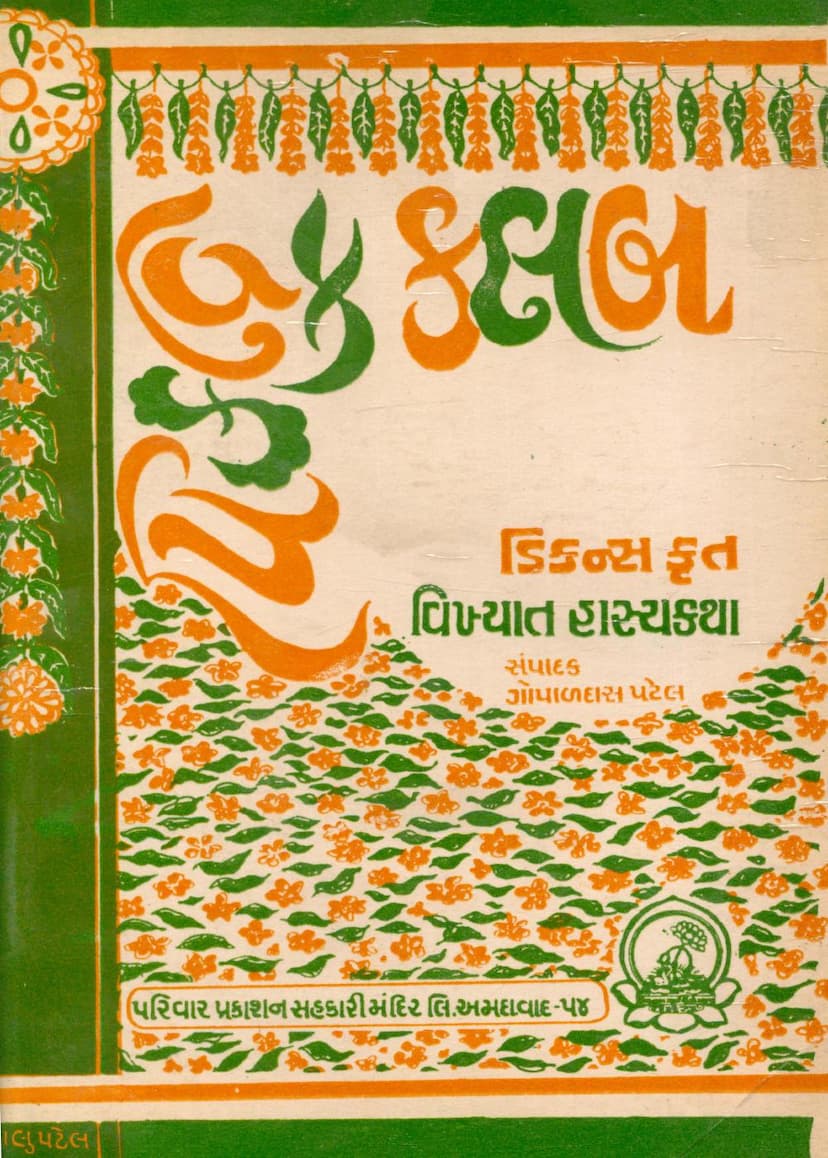Pikvik Club
Added to library: September 2, 2025

Summary
Here's a comprehensive summary of the provided Jain text, "Pikvik Club," based on the Gujarati content:
Book Title: Pikvik Club (પિકવિક ક્લબ) Author: Charles Dickens (as the original author of "The Pickwick Papers") Translator/Adapter: Gopaldas Jivabhai Patel (ગોપાળદાસ જીવાભાઈ પટેલ) Publisher: Parivar Prakashan Sahkari Mandir Ltd. (પરિવાર પ્રકાશન સહકારી મંદિર લિ.) Catalog Link: https://jainqq.org/explore/006011/1
Overall Summary:
"Pikvik Club" is a Gujarati translation and adaptation of Charles Dickens' famous satirical novel, "The Pickwick Papers." The book was published by Parivar Prakashan Sahkari Mandir Ltd. in Ahmedabad in June 1984. Gopaldas Jivabhai Patel is credited as the editor. The publication aims to present a condensed Gujarati version of Dickens' work, making it accessible to Gujarati readers.
Key Themes and Content:
The book introduces the "Pikvik Club," founded by the wealthy and retired gentleman, Mr. Pickwick. The club'S primary activity involves sending its president, Mr. Pickwick, and three other esteemed members on a journey across England. The purpose of this journey is to observe and report back on the various aspects of English society, its institutions, and the characters encountered.
Through the travels and experiences of Mr. Pickwick and his companions – Mr. Tupman (a sentimentalist), Mr. Snodgrass (a poet), and Mr. Winkle (a sportsman) – Charles Dickens uses humor and satire to critique various segments of society. The text highlights the author's sharp commentary on:
- Social Institutions: The book satirizes the legal system, the medical profession, elections, scientific research, and religious organizations.
- Social Classes: It portrays the lives and follies of various social strata, from the wealthy to the poor, masters and servants.
- Human Nature: Dickens, through his vivid characters, explores and exposes the eccentricities, hypocrisies, and occasional virtues of human nature.
The publisher's note emphasizes the unique blend of humor and novelistic elements in Dickens' creation. It explains that the traveling members of the Pikvik Club are tasked with sending letters back to the club detailing their experiences, observations, and encounters with different individuals. This format allows Dickens to weave a tapestry of English life, highlighting its shortcomings and offering a critique.
The translation aims to capture Dickens' wit and satire in Gujarati, acknowledging the difficulty of such an undertaking. The publisher also expresses satisfaction in fulfilling a mission initiated by the late Shri Maganbhai Desai to make world literature accessible to Gujarati readers through condensed translations.
Notable Characters Introduced:
The text includes a detailed character introduction, outlining the roles of:
- Mr. Pickwick: The founder and president of the Pikvik Club.
- Mr. Tracy Tupman: A member known for his chivalry towards women.
- Mr. Augustus Snodgrass: A poet.
- Mr. Nathaniel Winkle: A sportsman.
- Mr. John Smauker: A satirical member and associate of the Pikwik Club.
- Mr. Wardle: A landowner with two daughters.
- Jingle: A rambling actor and trickster.
- Sam Weller: A clever and loyal servant who becomes a central character.
- Mr. Pickwick's father (Old Mr. Weller): A coachman who offers advice on marriage.
The summary also touches upon the nature of Dickens' writing, mentioning his ability to expose societal flaws not just as a critic but also by offering potential paths for improvement. The translation's success in conveying the original English wit and satire is left for the reader to judge.
In essence, "Pikvik Club" is presented as a significant work that offers a humorous and insightful look into 19th-century English society, adapted for a Gujarati audience.